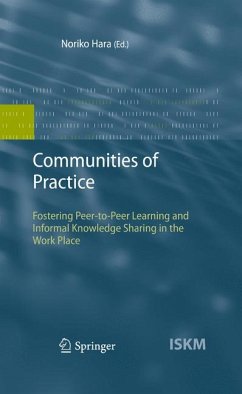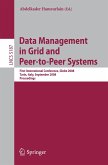The book examines how people share and construct their knowledge by using case studies of public defender's offices. Despite strong interests among practitioners and scholars, empirical studies of CoPs are sparse. Drawing on theories from situated cognition and social informatics, this book investigates what constitutes a community of practice and how members of the community create a shared meaning in workplaces with and without IT.
Dieser Download kann aus rechtlichen Gründen nur mit Rechnungsadresse in A, B, BG, CY, CZ, D, DK, EW, E, FIN, F, GR, HR, H, IRL, I, LT, L, LR, M, NL, PL, P, R, S, SLO, SK ausgeliefert werden.
Elisabeth Davenport
Professor Emeritus
Napier University, Edinburgh









